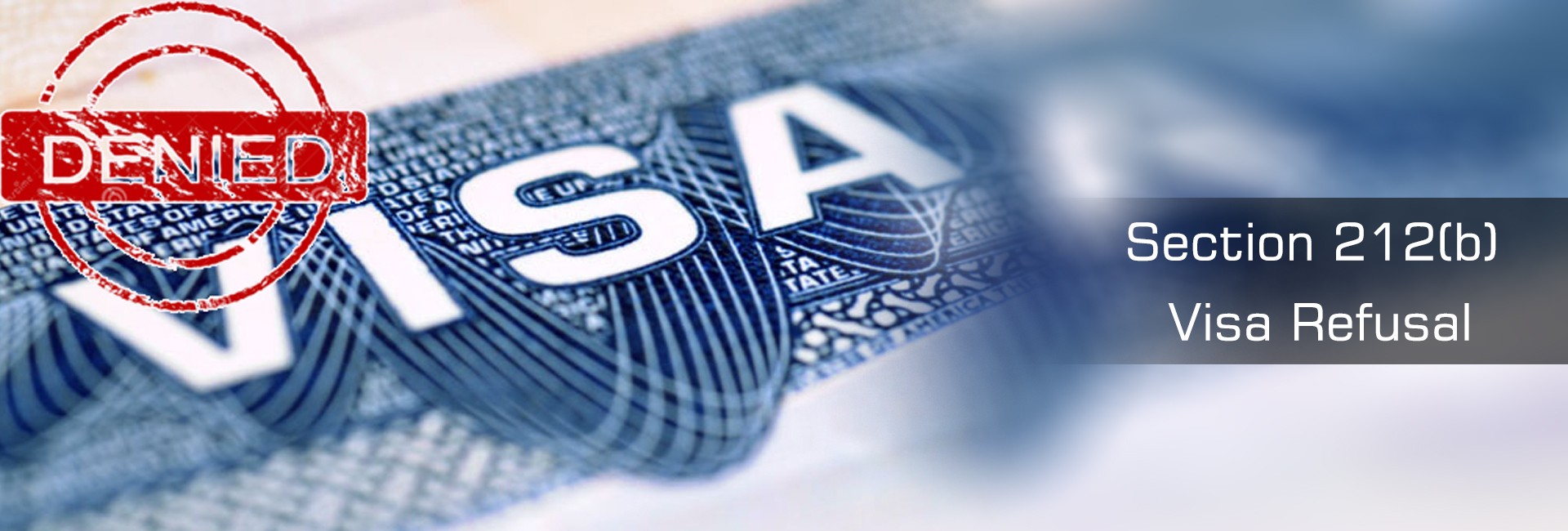
➥ We care for our clients
Section 214(b) of the Immigration and Nationality Act
Applicants refused non-immigrant visas are handed standard rejection letters stating that the reason they were denied is because of lack of strong ties to their home countries and do not meet the standards for issuance of the visa. Over the course of many years, we have compiled a list of actual reasons used by consular officers to deny applicants under Section 214(b). The most popular are:
- Limited ties to home country.
- Interview problems.
- Inaccurate consular understanding of facts or law.
- Fit overstay profile
- Numerous, long-term visits to the US/extending status while in the US.
- Indicating a prolonged visit in application
- Change of status in the US
- Student-specific problems
- Hostage situation
- Other relatives who previously emigrated
- Pending or previously denied immigrant petition/application
- Applicant suspected of fraud
- Lack of travel to Europe
- Previous denial/Lack of change in circumstances since previous denial. Application at a non-home post/re-application at new
- post after denied at a different consulate (Post-shopping)
- Guilt by association
- Inadequate finances to support the purpose of the trip
- Intent to visit the US to give birth in B status
- Applicant previously gave birth in the US on a B visa
- Suspicious-looking invitations
- Get-acquainted trip to see significant other
- Failure to comply with a posts specific application requirements
- Failure to meet the criteria for issuance of a work visa
- Real estate ownership in the US
- 2-time participants in the Summer Work Travel Program
- Elderly applicants
- Previous contact with police
- Pending immigrant applications to another country
The flexibility of Section 214(b) of the Immigration and Nationality Act is truly a unique experience in immigration law. As noted, many of these reasons are not valid reasons, and in fact, are specifically prohibited by Department of State regulations. Therefore, it is necessary to understand the consular officers rationale for the refusal, and when appropriate, challenge the decision. Failure to do so silence is viewed as consent with the decision.
PLEASE NOTE THAT we are the first and only Law Firm in Bangladesh and have been representing such cases regularly in U.S. Embassy, Dhaka through our designated, expert and experienced U.S. Immigration Specialist Lawyer. We would welcome you to see and consider our Case/U.S. Visa Success References released on this website. Summarized some of the cases in which we were able to assist our clients successfully.
If you would like us to examine your particular situation, it is possible to arrange an Appointment by telephone or e-mail for detailed consultation. Please contact us by e-mail or telephone.
Disclaimer: The information in this web site does not constitute legal advice. We make no guarantees about the accuracy or adequacy of the information contained or linked to this web site.






